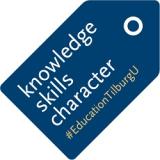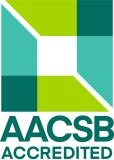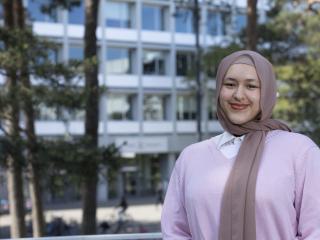Economics BSc
Study how people, companies and governments make certain decisions (microeconomics) and how these decisions affect the economy as a whole (macroeconomics). In the Bachelor's program Economics, you will learn how to use economic models to analyze and interpret changes in the local and global economic landscape. You will delve into current micro and macroeconomics topics such as economic growth and inequality, or economics and the environment.
US News Best Global Universities, 2023
in your classroom from all over the world
Elsevier Best Studies 2023
Short overview of Economics
- One of a kind in the Netherlands, this international program focuses on economics - the big picture and how different forces are at work in a global economy- from the very first year.
- The program pays a lot of attention to current affairs and how the economy shapes our daily lives.
- It is a small-scale program, with a large amount of personal contact, supervision and interactive teaching methods from day one.
Program and courses
Program content
Economics focuses on the environment in which individuals, companies and countries relate to each other. You will focus on the big picture and how different forces are at work in a global economy. Business related courses only play a small role in the program in order to allow for a specialized focus on economics. You will also learn how to use mathematics, statistics, and develop your programming skills to analyze the economy.
- The first year will give you a solid foundation in the core micro- and macroeconomics topics. Mathematics and Statistics will serve as tools: they are a language used to understand economic models.
- The second year will build on the knowledge you have gained in the first year. You will delve into microeconomics and macroeconomics more in-depth, gaining specialized knowledge in a range of courses such as Development Economics or International Trade.
- In the third year you can study abroad for one semester at one of our many partner universities around the world, choose to do an internship, or you can stay in Tilburg and take a minor in economics & management and elective courses. Your thesis is the crowning achievement of all your hard work.
Typical courses are:
- Macro 1: Principles
Learn different aspects of international economics, such as how exchange rates, capital flows between countries, and the trade balance are affected by policies and shocks. - Micro 1: Principles
Learn about the economic behavior of individual economic decision-makers and about the interaction of economic agents. - Mathematics
This course teaches you to recognize economic problems as mathematical problems and provides mathematical tools for solving these problems.
Beyond your Bachelor's: Extracurricular Activities
Beyond your Bachelor's: Extracurricular Activities
- Join one of our student organizations. It's a great way to meet like-minded students and make friends.
- Challenge yourself by participating in one of the programs of excellence.
After your Bachelor's
Careers and subsequent Master’s programs
After obtaining your Bachelor's degree in Economics, you can choose to do a Master's program. After you have completed a Master's program, you will have favorable career prospects, for example as an economist or data analyst.
Graduates found work at accountancy firms, insurance companies and in the banking world.
Application and admission
Please follow the national application and admission procedure (in Dutch) if you are applying based on a Dutch vwo or hbo-p diploma, regardless of your nationality. A general description of the national application procedure is also available in English.
Admission requirements
- To be eligible for admission to a research university such as Tilburg University, you must have a high school diploma equal to the highest level of secondary education in the Netherlands (the Dutch vwo diploma).
- As this Bachelor’s program is taught entirely in English, you must prove your English language proficiency.
- A good knowledge of mathematics is important for being successful in this Bachelor’s program. In order to be admitted, you must therefore prove that you have sufficient knowledge of mathematics.
You can find more detailed information about the admission requirements on this program's 'Application and admission' page.
Tuition fees and monthly cost of living
Tuition fees
When you wish to study at Tilburg University, you must pay a tuition fee.
- Tuition fees cover the cost of lectures and facilities provided by the university, such as the extensive university library, Wi-Fi on campus, and symposia and other meetings.
- Tuition fees at Tilburg University are always for one full academic year.
More information on the tuition fees and rates
Estimated monthly costs of living
Besides the tuition fees, you will have living costs and other expenses. You will find life in Tilburg relatively inexpensive compared to life in other Dutch university cities, such as Amsterdam and Utrecht. The approximate cost of living is between € 925 and € 1.125 per month.
| (Furnished) accommodation | Starting from € 550 per month |
|---|---|
| Foods & Drinks | € 200 per month |
| Books & Readers | € 65 per month |
| Insurance | € 100 per month |
| Sport membership | + € 139.95 per year |
The Bachelor's program in less than 3 minutes
Do you want more information on this Bachelor's program?
-

Camilla
Bachelor's student"The international aspects of our courses and the many international students give me an insight into how the world works. My favorite fields are development economics (why are countries poor and what can we do about this?) and behavioral economics (how can we explain and influence decision-making?)."
-

Alessandro
Bachelor's student"If I had to choose one word to describe my experience at Tilburg University, it would be 'rewarding'. I have found an international and welcoming environment here, which, when combined with the rigor of the classes and the expertise of the teachers, has equipped me to confront the challenges that life may bring in the future."
-

Victor
Bachelor's student"The way we tackle and understand economic issues is constantly changing. The university sits at the top of this revolution, enabling me with the tools necessary to drive this change and a better way of understanding society in the 21st century."
Study choice activities
Throughout the year you have the opportunity to meet us and learn more about Tilburg University and the programs that we offer. You can take part in various types of events: on-campus, abroad or online.
-
16:00 - 17:00
Housing - Live webinar for Bachelor's and Master's students
Interested in finding accommodation in Tilburg as you get ready to start your studies? Join our interactive Live Webinar on Housing on April 25. Meet our international team and learn more about the city. You can join the 1-hour webinar either at 10:00 or 16:00 CEST.
-
13:30 - 16:00
Campus Experience
Are you curious about life as a student at Tilburg University, or not sure which university you want to attend? Join our Campus Experience on May 8! Discover our compact and green campus with one of our students and find out if Tilburg University is your future home.
-
To be announced
Bachelor's Open day
Find out everything about studying in Tilburg in the Netherlands during the Bachelor's Open day on November 2. Check out our offer of international Bachelor's programs and talk to students, teachers and study advisors.
All information in one e-brochure
Create your own e-brochure with information on program content, admission requirements, career prospects, and student life in Tilburg.
All information in one e-brochure
Are you and Economics a match? If you...
-
like using economic models to better understand the world around you
-
are interested in what motivates many of the decisions that people, companies and governments make
-
are not afraid of some math
Then this is the program for you!






